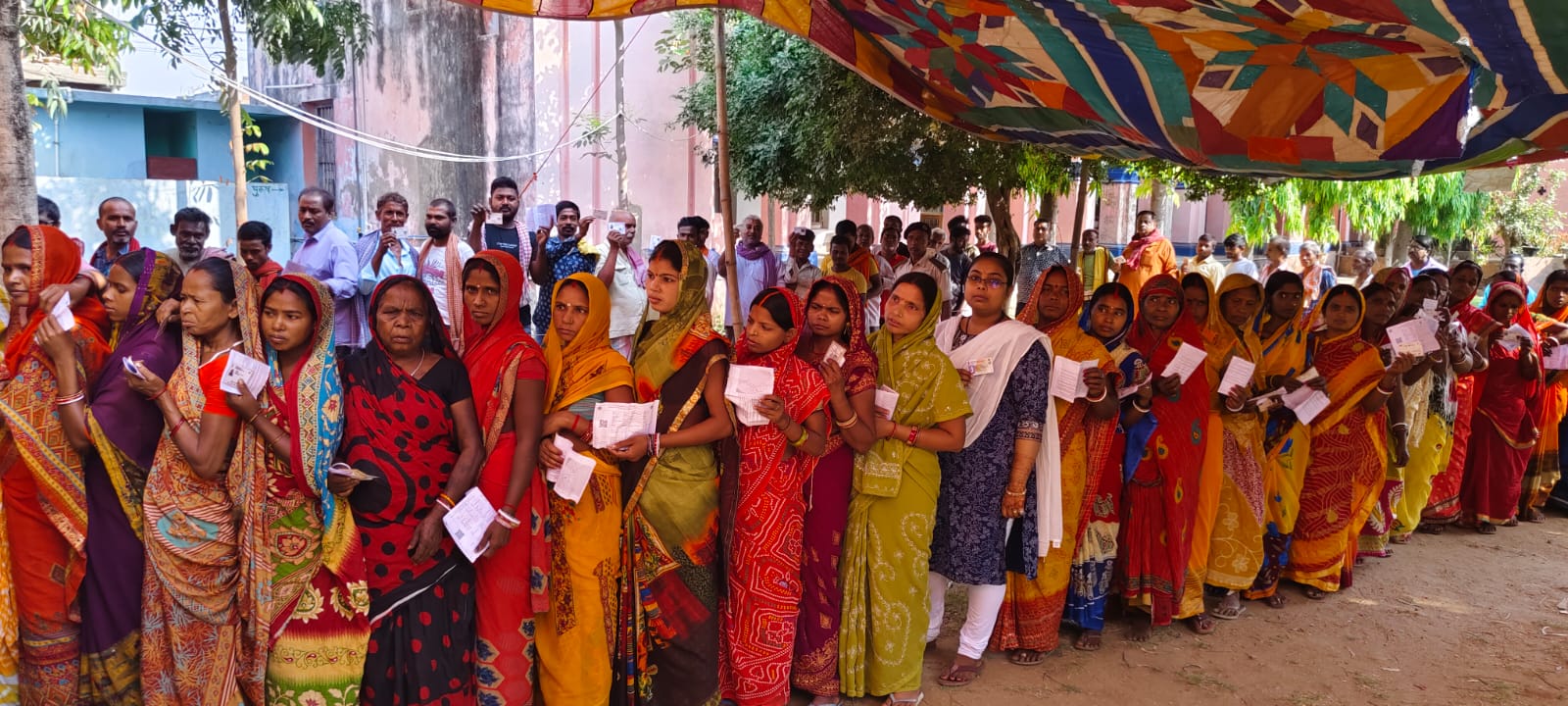
India, the world’s largest democracy, is witnessing an intensification of divisive rhetoric as the ruling Bharatiya Janata Party (BJP) sharpens its campaign strategies ahead of the general election. The BJP, led by Prime Minister Narendra Modi, has increasingly framed the election discourse in terms of Hindu-Muslim antagonism, raising alarm among critics who argue that such tactics threaten the nation’s secular fabric and social harmony.
Recently, the BJP released videos that depict Muslims as invaders assaulting Hindu temples and stealing jewelry from Hindu women. This controversial move aligns with Prime Minister Modi’s frequent characterizations of Muslims as “infiltrators,” rhetoric that many view as inflammatory and dangerous. In one particularly provocative video, an opposition politician is shown placing an egg labeled “Muslims” in a nest with three other eggs representing disadvantaged Indian communities. A bird, wearing a skull cap associated with Muslim men, hatches from the egg and violently ejects the other birds from the nest. This imagery is a stark example of the BJP’s divisive tactics, which critics argue are designed to stoke fear and resentment among Hindu voters.
As India approaches the fourth phase of its protracted seven-week general election on May 13, 2024, the campaign rhetoric has become increasingly strident. Prime Minister Modi, campaigning for an unprecedented third term, faces a formidable challenge from a coalition of over two dozen opposition parties, led primarily by the Indian National Congress (INC). Polling on Monday will involve 96 seats across 10 states and territories, with a significant number in the southern and eastern states of Telangana, Andhra Pradesh, and Odisha, regions where the BJP’s influence is comparatively weak.
Political analysts suggest that the lower voter turnout in the earlier phases of the election has prompted Modi to shift his campaign strategy. Initially focused on his economic record, Modi has pivoted to accusations that the Congress party plans to extend welfare benefits to minority Muslims at the expense of disadvantaged tribal groups and Hindu castes. The Congress has vehemently denied these allegations, countering that Modi’s shift in focus indicates his discomfort with the turnout, a claim the BJP dismisses.
India, a nation of 1.4 billion people with approximately 80% identifying as Hindus, also hosts the world’s third-largest Muslim population, about 200 million strong. Despite the religious undertones of the current campaign, surveys indicate that voters are primarily concerned with economic issues such as unemployment and inflation. The BJP’s focus on communal divisions appears to be a strategic attempt to divert attention from these pressing economic concerns.
Rahul Gandhi, the leading figure of the Congress party, has centered his campaign on advocating for better representation and welfare programs for India’s poor and disadvantaged communities. He has consistently criticized the Modi administration for exacerbating wealth inequality during its ten-year rule, an accusation the government has denied. Gandhi’s platform underscores the growing economic disparity and seeks to address the needs of marginalized groups through inclusive policies and social welfare initiatives.
In stark contrast, Modi’s rhetoric has increasingly leaned towards polarizing religious sentiments. His portrayal of Muslims as a threat to Hindu interests is not only divisive but also undermines the inclusive ethos enshrined in the Indian Constitution. The BJP’s alliance with the Rashtriya Swayamsevak Sangh (RSS), a right-wing Hindu nationalist organization, further complicates the political landscape. Critics, including Congress candidate Sunny Hazari, argue that a BJP victory could lead to constitutional changes that would erode democratic principles and end affirmative action policies designed to uplift historically disadvantaged communities. Hazari has warned that voting for Modi is tantamount to endorsing “permanent slavery,” accusing the BJP of provoking communal unrest instead of addressing critical issues like unemployment and inflation.
The implications of such a divisive campaign are far-reaching. India’s rich tapestry of cultures, languages, and religions has always been a source of strength, fostering a unique form of democratic pluralism. However, the increasing polarization threatens to unravel this social fabric, leading to a more fragmented and contentious society. The portrayal of Muslims as the ‘other’ not only marginalizes a significant portion of the population but also sows seeds of mistrust and animosity that could have long-term repercussions.
Moreover, this strategy of communal polarization diverts attention from the pressing economic issues that the country faces. Unemployment rates are high, and many Indians are grappling with rising prices of essential goods. By focusing on religious divisions, the BJP risks neglecting the economic challenges that require urgent attention and comprehensive policy solutions.
As India approaches the crucial voting phase, it is imperative for the electorate to critically evaluate the narratives being presented. The choice between communal division and inclusive development is stark. The future of India’s democracy depends on voters’ ability to see through the rhetoric and focus on issues that truly matter – economic stability, social equality, and the preservation of democratic values.
In conclusion, the BJP’s current campaign strategy, characterized by its divisive rhetoric, represents a significant departure from the principles of unity and inclusivity that have long underpinned Indian democracy. As Prime Minister Modi seeks a third term, the electorate faces a crucial decision that will shape the future of the nation. It is essential for voters to reject divisive narratives and demand leadership that prioritizes economic development, social justice, and the preservation of democratic norms. Only by doing so can India continue to progress as a vibrant, pluralistic democracy.
